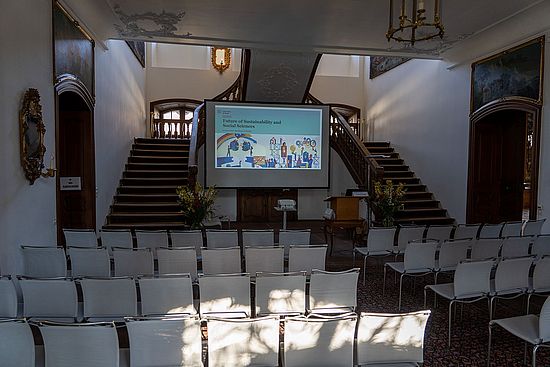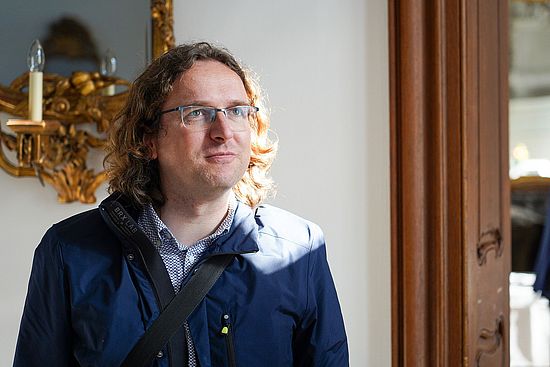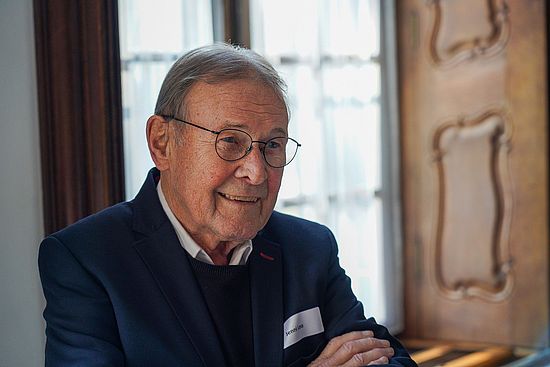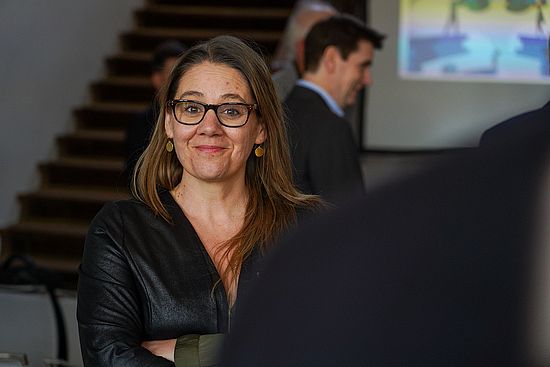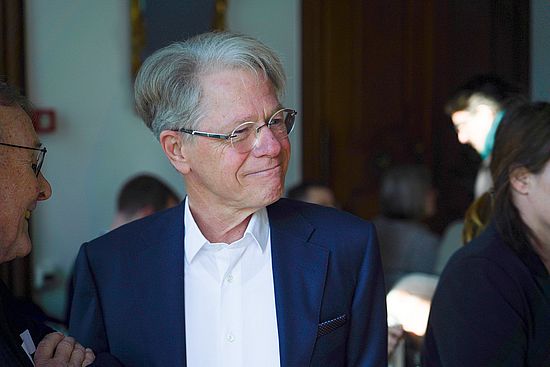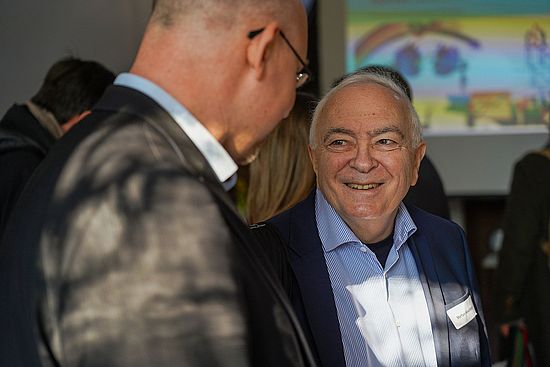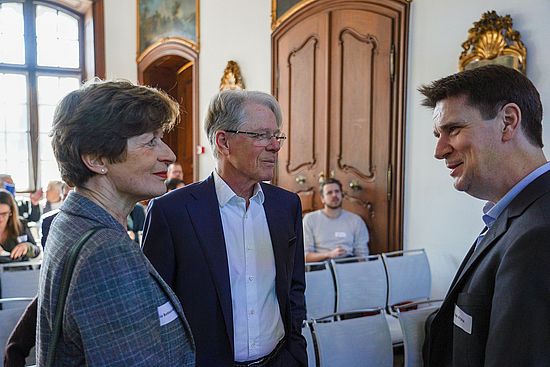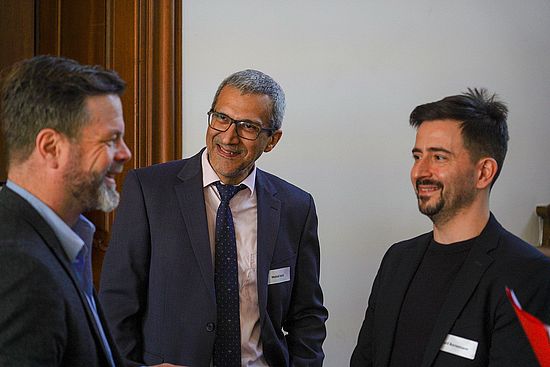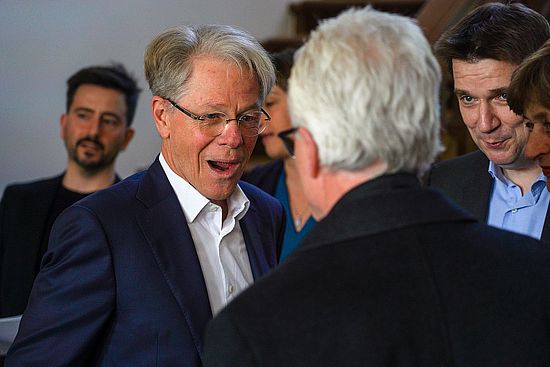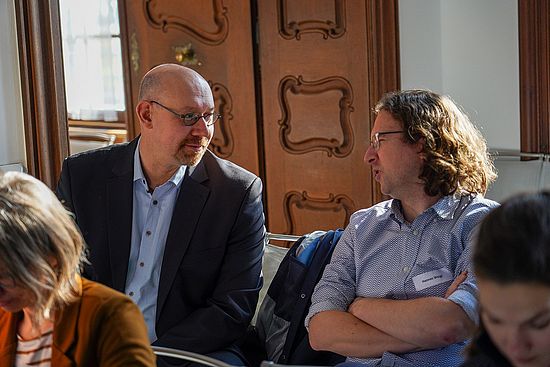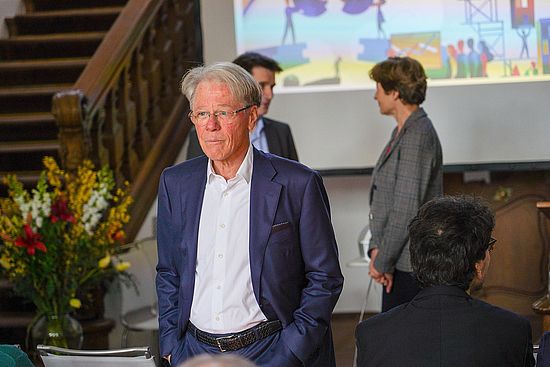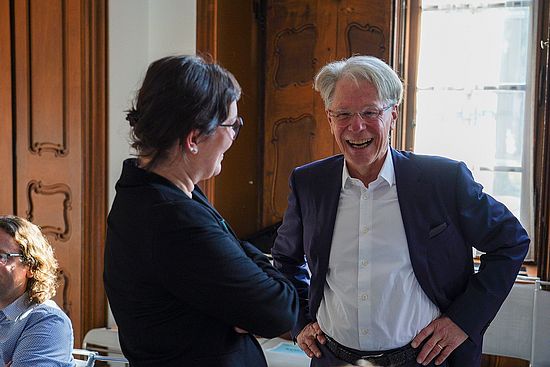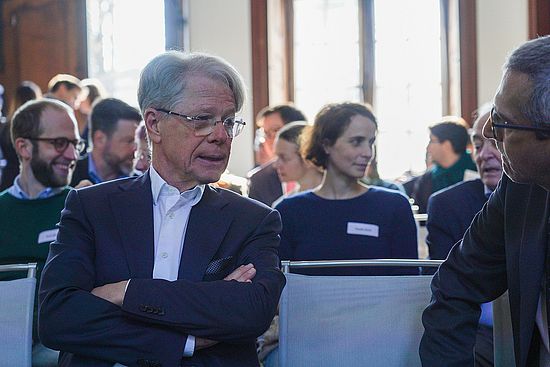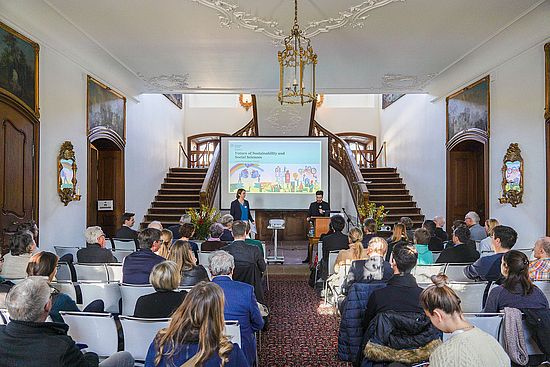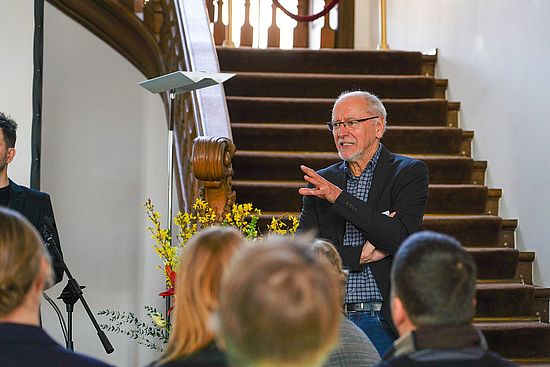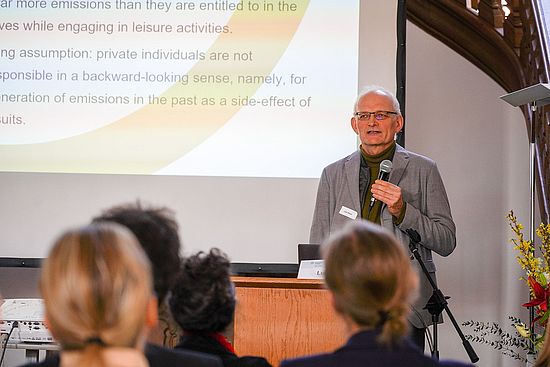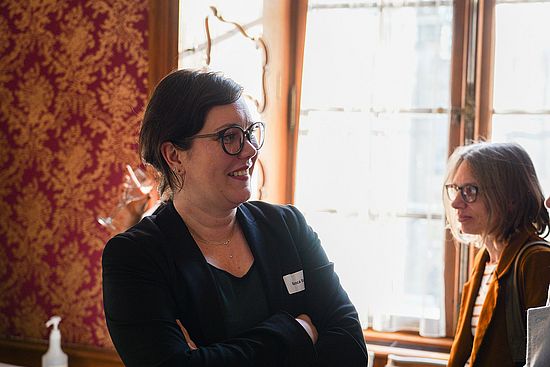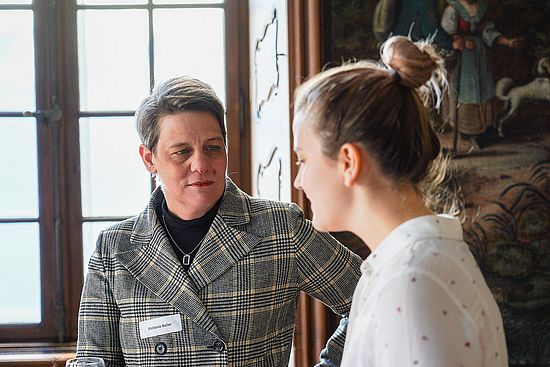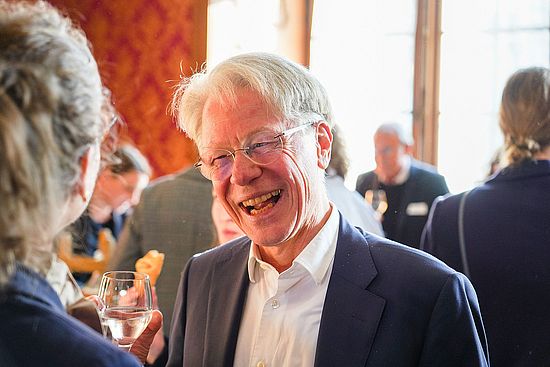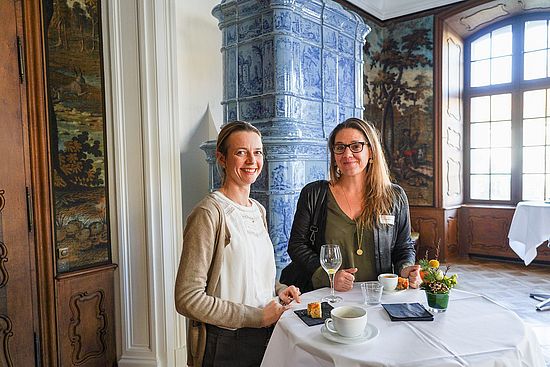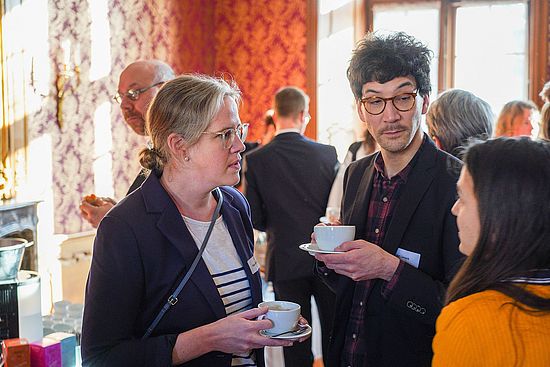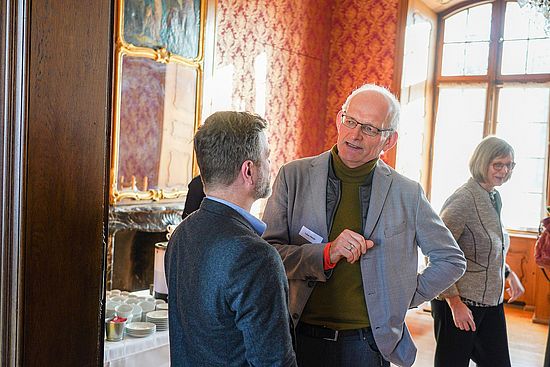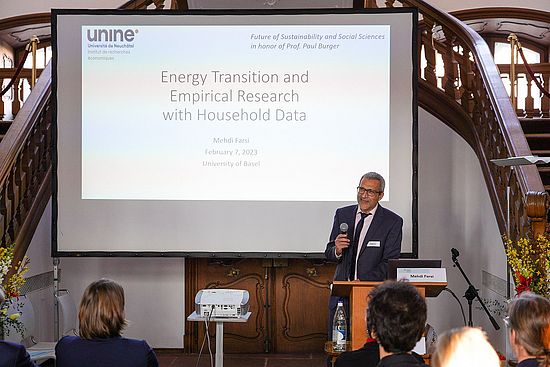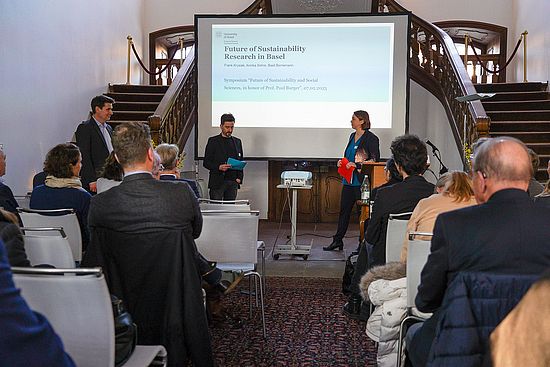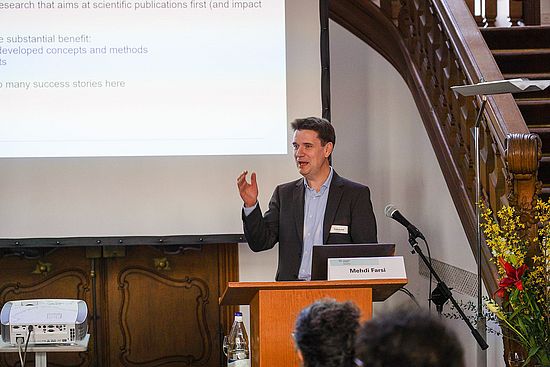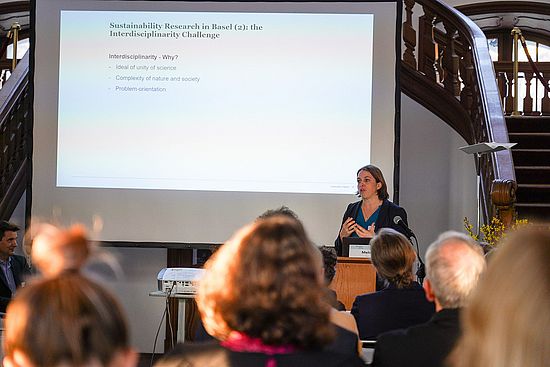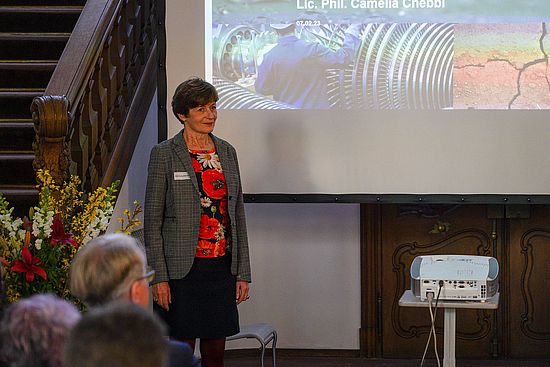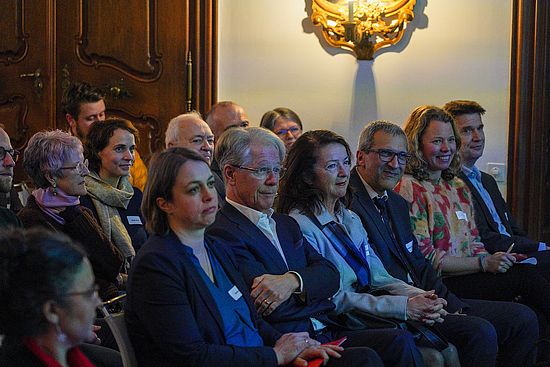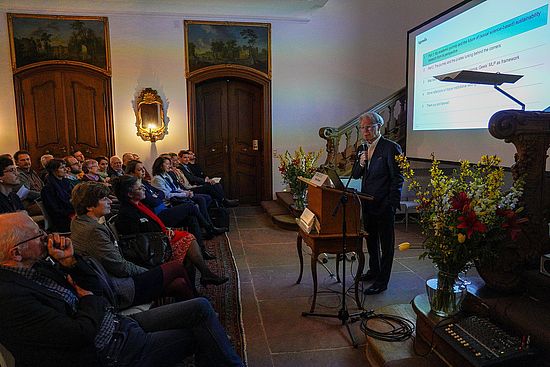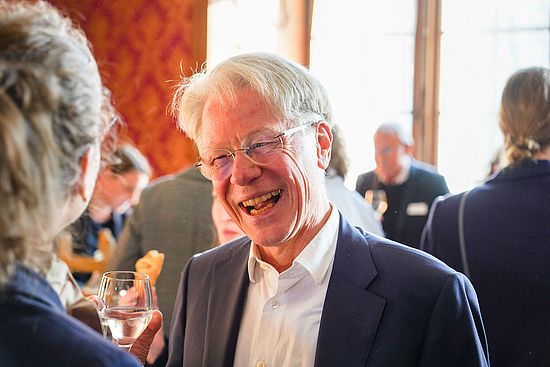
Rückschau zum Symposium:Future of sustainability and social sciences in honor of Prof. Paul Burger
Reflections on the symposium "Future of sustainability and social sciences in honor of Prof. Paul Burger"
The symposium was held in honor of Prof. Paul Burger, who has made outstanding contributions to sustainability and social science research, ranging from theoretical contributions on the concept of sustainability and the governance of sustainability-oriented transformation processes to empirical research, in particular in relation to sustainable energy transitions. In spring 2023, Paul Burger will leave active university life behind and start his well-deserved retirement.
We celebrated a beautiful afternoon and evening with Paul Burger, his former colleagues, and friends with an Apéro Riche at the Wildt‘sche Haus in Basel.
We thank the keynote speakers for their interesting and diverse talks and the attendees for celebrating with us. And we thank Prof. Paul Burger for his wonderful contributions to the sustainability and social science research fields.
Here are the reflections on the talks given:
Armin Grunwald
Prof. Dr. Armin Grunwald posed the question: will the Anthropocene develop into a good era, or a devastating one full of catastrophes for humans and the environment? He then argued for humans having an ethical obligation to make it a good era that guarantees sustainable development, which necessitates justice between and within generations.
Lukas Meyer
Prof. Dr.phil. Lukas Meyer gave a talk on why and how emissions produced by leisure activities should be reduced to their fair share and an emissions budget fairly distributed (globally and nationally). Private individuals are not to be held responsible in a backward-looking way for their emissions, but in a forward-looking way. He closed his talk by arguing that keeping well under 2 degrees Celsius of global warming can become plausible if ambition, implementation, and knowledge gaps are closed.
Mehdi Farsi
Prof. Dr. Mehdi Farsi spoke on the importance of household data in sustainability research, as we need to understand energy consumption in the household to see which technological advances need to be made, and how we can gain public acceptance for government policies. Furthermore, he introduced the audience to two research projects: one on cultural differences in energy behaviors, and one on the barriers to and drivers of electric vehicle policy.
Prof. Frank Krysiak, Dr. Annika Sohre, Dr. Basil Bornemann
The future of sustainability research in Basel combines research that is useful societally and that is theory-based and abstract. The speakers talked about why and how interdisciplinarity in research can be achieved, and how Basel will concern itself with linking systems, target, and transformation knowledge to work on sustainability goals and strategies.
Prof. Dr. Patricia Holm & Camelia Chebbi
The history and intentions of the MGU (Programm Mensch-Gesellschaft-Umwelt) were presented. Additionally, the Master of Sustainable Development at the University of Basel, its history, milestones, and contents were discussed.
Prof. Dr. Paul Burger
Prof. Dr. Paul Burger detailed his academic journey in sustainability research over the past 25 years. He talked about how science should be a contributor to transitioning the world via inter- and transdisciplinarity in research. Knowledge production and governance of change should be parts of that research. During his career, he also focused on conceptualizing coupled human-nature systems and co-evolution, sustainability as a justice issue, capability-based sustainability conceptions, and much more. Lastly, he also talked about the “pirates” in the way- issues with funding from universities and opposition during his career; as well as suggested remedies for these pirates and future directions research might go in.





























Social Media

